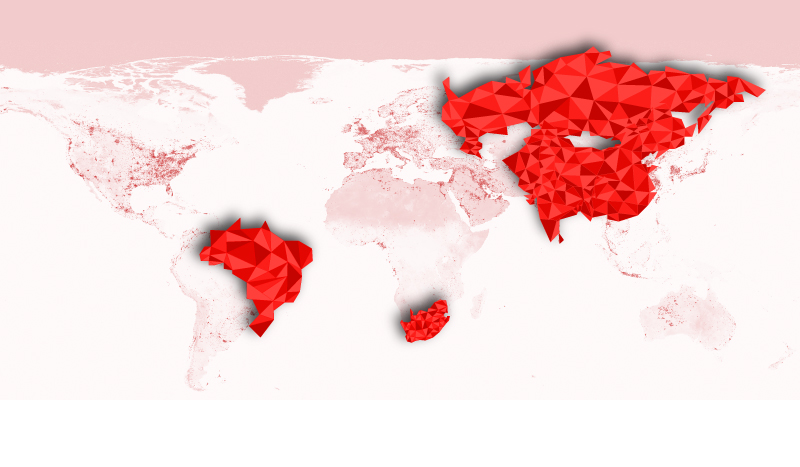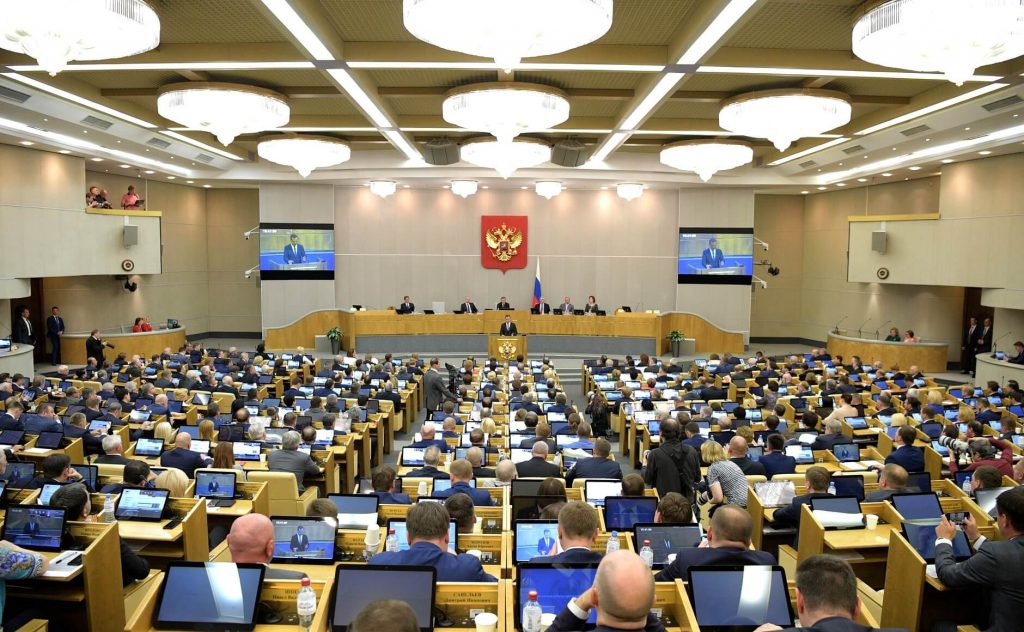Russia
The Role of Think Tanks in the Digital Era: The CyberBRICS Example
Below the transcripts of Prof Luca Belli’s intervention at the International High-level Think Tank Forum of the World Internet Conference, Wuzhen Summit. Good morning to all participants and organisers and many thanksfor having invited me to be a speaker at this important session of the World Internet Conference 2021. It is a great honour for … Read more
Cybersecurity Convergence in the BRICS Countries
By Luca Belli The thirteenth BRICS Summit took place on 9 September 2021 and cybersecurity featured prominently amongst the priorities identified by BRICS leaders. The BRICS – Brazil, Russia, India, China, and South Africa – are explicitly advocating for enhanced cooperation on cybersecurity issues, both at the international and intra-BRICS level. The facility with which cooperation … Read more
Notes From a Foreign Field: The European Court of Human Rights on Russia’s Website Blocking
By Gurshabad Grover and Anna Liz Thomas From PUBG to TikTok, online services are regularly blocked in India under an opaque censorship regime flowing from section 69A of the Information Technology (IT) Act. Russia happens to have a very similar online content blocking regime, parts and processes of which were recently challenged in the European … Read more
Russia during COVID-19: information warfare, digital passes and digital protest
By Anna Orlova and Andrey Shcherbovich Since March 2020, Russia has been suspected of information warfare, that is, proactive state propaganda and dissemination of the so-called “fake news”, in response to the coronavirus crisis. This information war aims to diminish and downplay the current state of coronavirus pandemic in Russia. Russia and China, in particular, were … Read more
‘Digital sovereignty’: can Russia cut off its Internet from the rest of the world?
By Francesca Musiani, Benjamin Loveluck, Françoise Daucé, Ksenia Ermoshina Texte intégral en française The Internet infrastructure is based on the principle of the internationalisation of equipment and data and information flows. Elements of the Internet with a geographic location in national territories need physical and information resources hosted in other territories to be able to … Read more
Download the exclusive preview of “CyberBRICS: Mapping Cybersecurity frameworks in the BRICS”
CyberBRICS: Mapping Cybersecuity Frameworks in the BRICS This book stems from the CyberBRICS project, which is the first initiative to develop a comparative analysis of the digital policies developed by BRICS (Brazil, Russia, India, China and South Africa) countries. BRICS have been chosen as a focus not only because their digital policies are affecting more … Read more
Terceira edição do boletim do Observatório CyberBRICS
| Confira o boletim bimestral do Observatório CyberBRICS que fornece atualizações sobre políticas digitais no BRICS. |
Seminar CyberBRICS: Cybersecurity, data protection and the digital future of the BRICS
On June 4, 2019 we held the event “CyberBRICS: Cybersecurity, Data Protection and The Digital Future of The BRICS”. The event sought to promote responses to the challenges related to personal data regulation and cybersecurity governance by providing valuable insights into BRICS digital policies that can be used by researchers, regulators and companies. It was … Read more
Seminar CyberBRICS: Cybersecurity, data protection and the digital future of the BRICS
The Rio de Janeiro Law School of Fundação Getulio Vargas (DIREITO RIO) will host the Seminar CyberBRICS: Cybersecurity, data protection and the digital future of the BRICS. The event aims to provide answers to the challenges related to personal data regulation and cybersecurity governance by providing valuable insights into BRICS digital policies that can be … Read more
Second issue of the CyberBRICS Observatory bulletin
Check out our bimonthly CyberBRICS Observatory bulletin providing updates on digital policy in the BRICS.
Sovereign Internet Law signed by the President of Russia
By Dr. Andrey Shcherbovich, CyberBRICS fellow and Simon Granberg and Angelo de Carvalho Gomes, FGV students (See russian version here) On 1 May 2019, the Russian President signed the “digital sovereignty law”, which has the purpose to establish autonomous Internet control systems and thereby create the possibility to separate a Russian intranet from the global Internet. … Read more
Закон о «суверенном Интернете» подписан Президентом России
Андрей Щербович, Щербович Андрей Андреевич , исследователь CyberBRICS, Саймон Гранберг и Анжело де Карвальо Гомес, студенты FGV 1 мая 2019 года президент России подписал Закон о «суверенном Интернете», целью которого является создание автономных систем управления Интернетом и тем самым возможное создание отдельной внутренней сети, изолированной от глобальной сети Интернет. Закон вызвал негативный общественный резонанс, так, … Read more
3D Printing and IP Futures: What did we learn from China, India and Russia?
By Angela Daly – Chinese University of Hong Kong Additive manufacturing, better known as ‘3D printing’, is an innovative manufacturing technique which involves the creation of three-dimensional objects using a variety of methods, based on a digital design file containing a 2D blueprint for the final object. In recent years, inexpensive 3D printers using plastics … Read more
Exploring the New Russian Measures against “Fake News” and Online Insults
By Dr. Andrey A. Shcherbovich (See russian version here) Two high-impact laws in the sphere of regulating relations on the Internet were signed by the President of Russia on March 18: the law on “Fake News” and the one on the Inadmissibility of Insulting Authorities Online. On March 18, Russian President Vladimir Putin signed amendments … Read more
First issue of the CyberBRICS Observatory bulletin
Check out our bimonthly CyberBRICS Observatory bulletin providing updates on digital policy in the BRICS.
Проект закона об автономной работе российского сегмента Интернета принят Государственной Думой РФ в первом чтении
Щербович Андрей Андреевич, кандидат юридических наук Государственная Дума в первом чтении проняла закон «суверенности» Интернета в России. За документ проголосовали 334 депутата, против – 47. При этом данный законопроект вызывает критику у представителей частного сектора, гражданского общества и даже у Счетной палаты (орган парламентского контроля Российской Федерации), ведь реализация нового законопроекта может потребовать от бюджета … Read more
The Russian bill on Internet Sovereignty adopted by the State Duma in first reading
By Dr. Andrey A. Shcherbovich (See russian version here) On 12 February 2019, the State Duma, the lower house of the Russian Federal Parliament, adopted in the first reading the draft bill on Internet “sovereignty” in Russia. 334 deputies voted in favor and 47 against the document. At the same time, representatives of the private … Read more


















